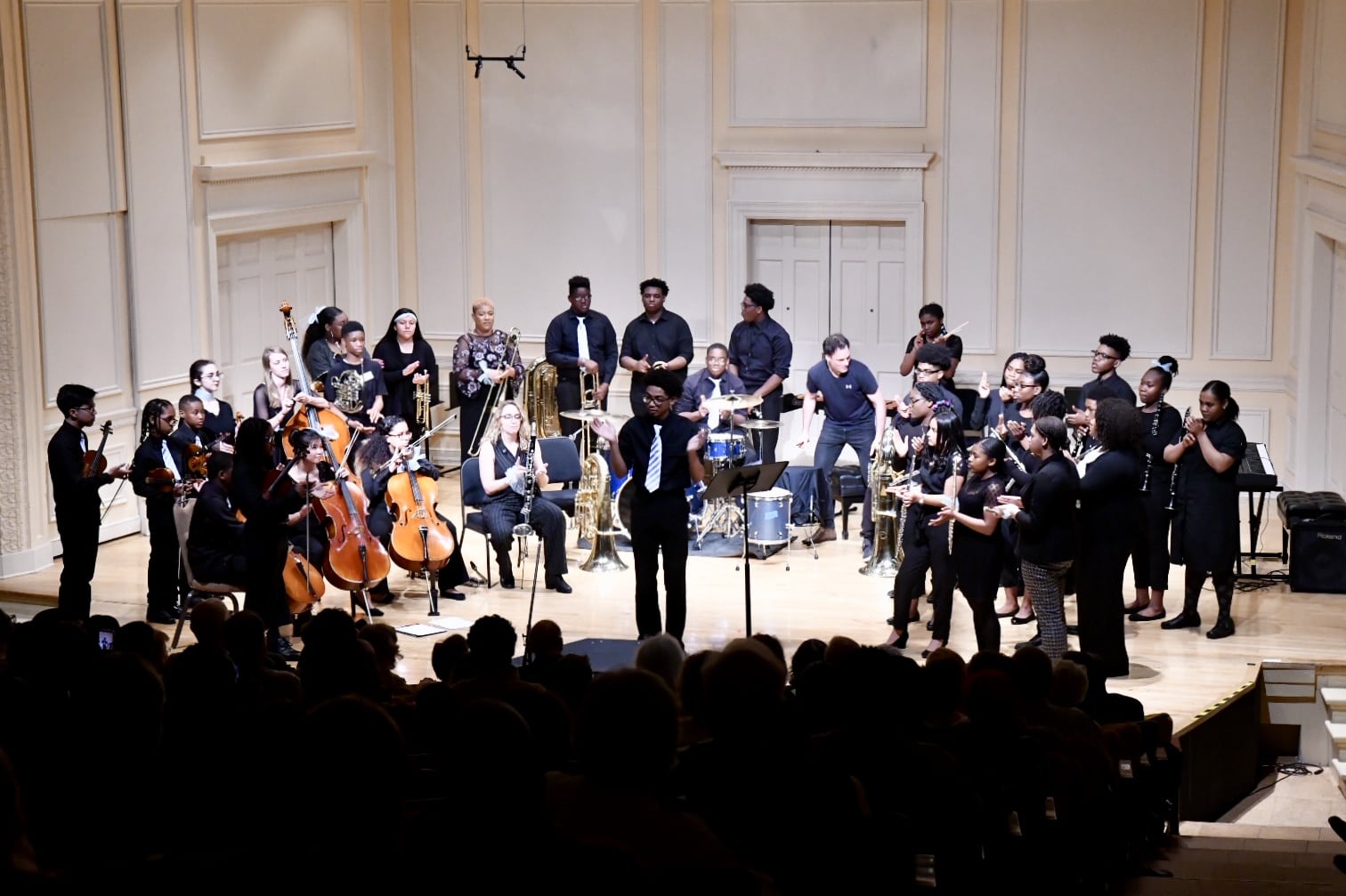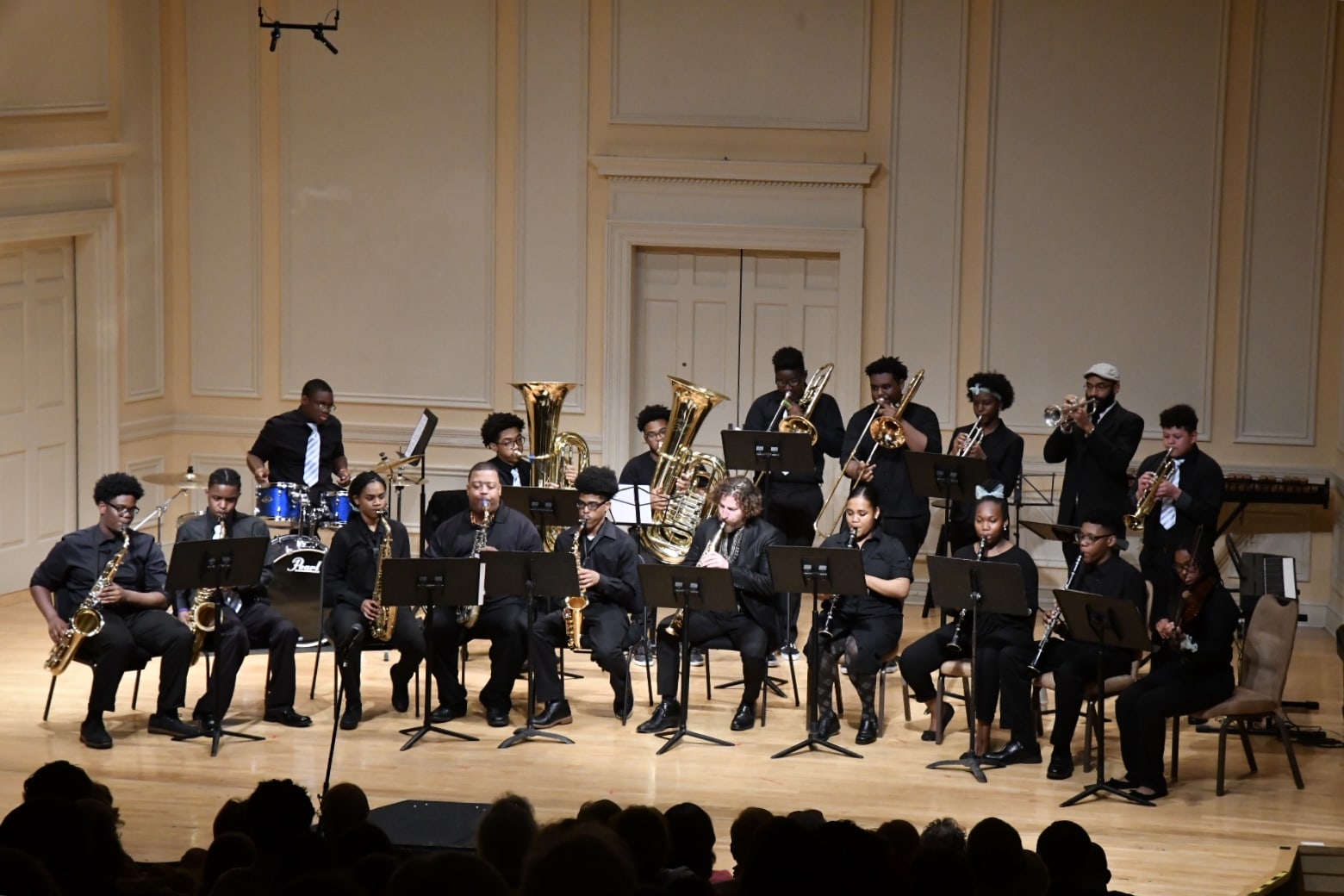In the early 1990s, I lived in New Orleans at the corner of Philip and Constance streets. At the time, it was the transition zone between the toney Garden District and the St. Thomas projects. More than once, from the balcony of my second-floor apartment, I would hear gunshots out of the projects. But I would also, on occasion, hear music. The source was a young boy with a drum and two of his companions.

The boy with the drum was barely big enough to support the instrument he wore strapped over his chest. He’d boom-boom-boom his way up, down, and around the streets, the rhythmic racket resounding through the soupy air from several streets away, until at last he thundered by. Often, he was accompanied by another boy with a trumpet and one with a trombone. Sometimes it was just happy noise. Other times they made sweet, if sloppy, music. This went on for a few months, the boys honking and pounding by in the late afternoon. One day, they got it together, and I tapped my toes to their rendition of a tune I recognized from Mardi Gras second line parades. I waved and gave them a thumbs up. The drummer smiled back at me over his shoulder as they passed.
I was reminded of this merry band of boys this past Saturday, April 13, while attending a spirited Baltimore Symphony Orchestra’s OrchKids performance in the Coolidge Auditorium at the Library of Congress. Under the artistic leadership of BSO Music Director Marin Alsop, OrchKid musicians play year-round, during and after school, forming the cornerstone of the BSO’s community outreach efforts. The program began in 2008 with 30 kids from one Baltimore City elementary school and has grown to 1,300 kids from seven Baltimore City schools, pre-K through 12th grade. OrchKids jazz band director Russell Kirk told DC Theater Arts that to be an OrchKid, there are no auditions, just an attendance requirement. “If they keep coming, then things happen,” he said.
Good things, in fact. A number of the OrchKids have remained in the program for nearly a decade, some since its inception, and one musician announced during the performance that she had been accepted to two prestigious conservatories.
Alsop credited what she called the “transformational power of music” for helping the OrchKids find direction in their lives. “You see how poised they are, how articulate they are, how talented they are. They really seize these opportunities, because they really see a future filled with possibility,” she said before introducing the youths.
On hand for this performance were about 40 musicians, divided into a jazz band and a string ensemble. It was the second consecutive year the OrchKids played at the venue. The young musicians ranged in age and ability but all shared enthusiasm for the music they were there to offer, including a set of Jelly Roll Morton (1890-1941) works transcribed and arranged by Kirk from a set of recordings Morton made at the Library of Congress in 1938. “So, it’s goosebumps time for us to play them here [too],” Kirk told the audience.
After giving us Morton’s Blue Medley, the band performed his Black Bottom Stomp. OrchKids Jazz Band member Keyona Carrington gave a competent clarinet solo, followed by bandmate Keith Fleming’s similarly impressive tuba solo. Leo Maxey, Kirk’s co-OrchKid jazz instructor, took the trumpet lead and solo to round out a rousing work teeming with the brassy sounds and spirit of Morton’s native New Orleans.

Also during the program, the OrchKids String Ensemble performed two works by Richard Meyer (b.1975), and the traditional Sally Gardens (arr. Jim Palmer), the latter conducted by Alsop.
The concert’s finale was an untitled collaborative creation inspired by the Library of Congress’s collection of works by ragtime king, Scott Joplin (c.1868 – 1917), which the young musicians had been invited to review back in January. The composition was grounded in a melody from the duet, “Slow Drag”, from Joplin’s opera Treemonisha. As a lead-in to their collaborative performance, the duet was sung by guest soprano Carmen Balthrop, and her daughter, soprano Camille Delaney McNeil. Balthrop sang in the Broadway premiere of the work in 1975 and now teaches voice at the University of Maryland. McNeil is OrchKids’ programs director.
The OrchKids’ original alternated from rowdy to contemplative. It was inspired by Joplin, but Morton’s influence was clear. Introduced and occasionally narrated and sung by various members of the combined jazz and string players, the work was syncopated and sophisticated.
Morton is a monumental figure in American music. With the Blues as his stanchion, he bridged the 19th and 20th centuries with compositions drawing from whatever sounds of the New Orleans streets interested him, whether it be the ragtime played in the brothels of the Marigny neighborhood where he lived, to the city’s traditional brass band funereal farewells, to the city’s rich history of opera. He was the first arranger of jazz music for big bands, demonstrating that the largely improvisational genre also lent itself to dependable forms ensembles could replicate.
The OrchKid’s creative collaboration exists only in the heads of the players, according to Kirk. “They never wrote it down,” he said in the interview, but he added that they did memorize enough of it so that even though some of it was improvisational, it was, like Morton’s work: mindful of the larger ensemble.
As one might expect, the audience was filled with proud parents, but also representing Baltimore in the front row was Congressman Elijah Cummings (D-Md.).
“I have heard the kids before. Every time I am overwhelmed. They are so talented. A lot of these kids live in the neighborhood I live in. And it’s a pretty rough neighborhood,” Cummings told DC Theater Arts. “The idea that these young kids have this opportunity to have their talents shown and nurtured means a lot.”
I do not know what became of the boys who used to showcase their own budding talents through the St. Thomas projects, incidentally, not far from the Marigny where Morton himself once lived. The day I caught the drummer’s smile was the last I ever heard them. Whether they were self-taught or part of an organization like OrchKids I will never know. I can say that, like the neighborhood Cummings says some of these OrchKids come from, those three boys came from a place that was rough – the projects were eventually razed, after housing authorities controversially declared it the only solution to the squalor and violence.
And yet, those three kids found joy in music and they shared it with one and all, taking it to the streets beyond their neighborhood. I hope that like the OrchKids, by showing up when the music called, their lives were transformed and that good things happened.
Running Time: 90 minutes with no intermission.
The OrchKids recital played on April 13, 2019, in the Coolidge Auditorium at the Library of Congress – 101 Independence Avenue, SE, in Washington, DC. For more information about the Baltimore Symphony Orchestra’s OrchKids program, go online.




